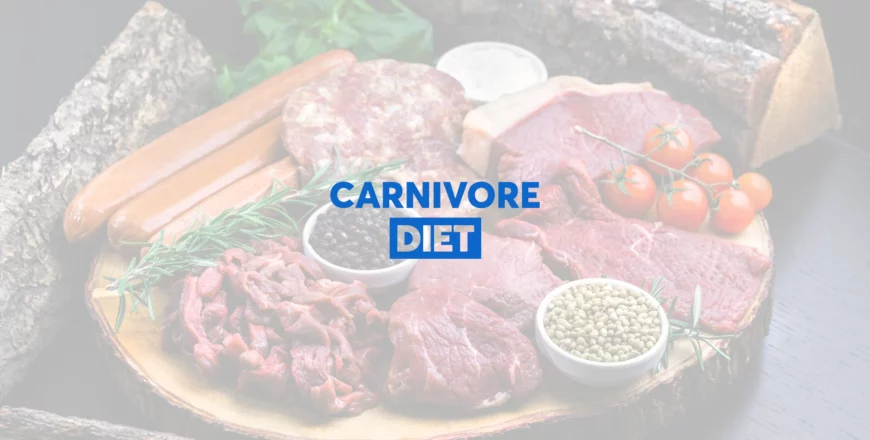
Course 27: Carnivore diet
- Description
- Curriculum
- FAQ
- Reviews

Course Description (What the course is about)
The Carnivore Diet course delves into the principles, benefits, and considerations of the carnivore diet, a dietary approach that emphasizes the consumption of animal-based foods while excluding plant-based foods. This course provides a comprehensive overview of the diet’s potential effects on health, explores its historical context, and discusses the scientific evidence surrounding its claims. Members will gain insights into the nutritional aspects, potential benefits, challenges, and ethical considerations associated with the carnivore diet.
Course Outcomes (What you’ll learn)
By the end of this course, members will have:
- Understand the principles and foundations of the carnivore diet.
- Analyze the historical context and evolutionary perspectives behind the diet.
- Evaluate the scientific evidence and controversies surrounding the carnivore diet.
- Assess the nutritional composition of animal-based foods and potential nutrient deficiencies.
- Examine potential health benefits and metabolic effects associated with the diet.
- Discuss ethical and environmental considerations related to the consumption of animal products.
- Plan balanced carnivore meals that meet nutritional needs.
- Address challenges and potential risks associated with the long-term adoption of the carnivore diet.
-
1Course 27: Carnivore diet - Introduction
-
2Lesson 1: Understanding the Principles and Foundations of the Carnivore Diet
-
3Lesson 1: Understanding the Principles and Foundations of the Carnivore Diet Quiz
-
4Lesson 2: Analyzing the Historical Context and Evolutionary Perspectives Behind the Carnivore Diet
-
5Lesson 2: Analyzing the Historical Context and Evolutionary Perspectives Behind the Carnivore Diet Quiz
-
6Lesson 3: Evaluating the Scientific Evidence and Controversies Surrounding the Carnivore Diet
-
7Lesson 3: Evaluating the Scientific Evidence and Controversies Surrounding the Carnivore Diet Quiz
-
8Lesson 4: Assessing the Nutritional Composition of Animal-Based Foods and Potential Nutrient Deficiencies
-
9Lesson 4: Assessing the Nutritional Composition of Animal-Based Foods and Potential Nutrient Deficiencies Quiz
-
10Lesson 5: Examining Potential Health Benefits and Metabolic Effects of the Carnivore Diet
-
11Lesson 5: Examining Potential Health Benefits and Metabolic Effects of the Carnivore Diet Quiz
-
12Lesson 6: Planning Balanced Carnivore Meals that Meet Nutritional Needs
-
13Lesson 6: Planning Balanced Carnivore Meals that Meet Nutritional Needs Quiz
-
14Lesson 7: Addressing Challenges and Potential Risks of Long-Term Carnivore Diet Adoption
-
15Lesson 7: Addressing Challenges and Potential Risks of Long-Term Carnivore Diet Adoption Quiz
What is the carnivore diet?
The carnivore diet is a dietary approach that involves consuming primarily animal-based foods while excluding or minimizing plant-based foods. It emphasizes foods such as meat, fish, eggs, and dairy products while excluding vegetables, fruits, grains, and other plant-based sources.
Is the carnivore diet nutritionally balanced?
The carnivore diet can be low in certain nutrients found in plant-based foods, such as fiber, vitamins, and minerals. While animal-based foods are rich in protein and some nutrients, it's important to ensure a balanced intake and address potential deficiencies through careful meal planning and, in some cases, supplementation.
What are the potential benefits of the carnivore diet?
Advocates claim potential benefits such as improved weight management, reduced inflammation, better digestion, and increased mental clarity. However, more research is needed to understand the long-term effects and health implications.
Are there potential risks associated with the carnivore diet?
Adopting a strict carnivore diet can lead to potential nutrient deficiencies, particularly in vitamins, minerals, and fiber. Additionally, high intake of saturated fats and cholesterol from animal products may raise concerns about heart health. Consultation with a healthcare professional is recommended before making significant dietary changes.
Can the carnivore diet be sustainable and ethical?
The sustainability and ethics of the carnivore diet are subjects of debate. The diet relies heavily on animal products, which can have environmental impacts and ethical considerations related to animal welfare. It's important to weigh these factors when considering this dietary approach.
Who might benefit from the carnivore diet?
Individuals seeking to explore the effects of eliminating plant-based foods from their diet or those with specific health conditions (under medical supervision) might consider trying the carnivore diet. However, due to potential risks, it's advisable to consult a healthcare professional before starting.
Is the carnivore diet suitable for everyone?
The carnivore diet may not be suitable for everyone, especially those with certain health conditions or specific dietary needs. Individuals with preexisting medical conditions, pregnant or breastfeeding individuals, and those at risk of nutrient deficiencies should approach this diet cautiously.
How can I ensure proper nutrition on the carnivore diet?
If you choose to follow the carnivore diet, focus on incorporating a variety of animal-based foods to obtain a diverse nutrient profile. Consider consulting with a registered dietitian or healthcare professional to ensure you're meeting your nutritional needs and avoiding potential deficiencies.
Can I transition to and from the carnivore diet easily?
Transitioning to and from the carnivore diet should be approached thoughtfully. Abruptly adopting or discontinuing this diet may impact your body and digestion. Gradual transitions and seeking guidance from a healthcare professional can help manage potential side effects.
Is the carnivore diet recommended for weight loss?
Some individuals claim weight loss benefits from the carnivore diet due to its restriction of carbohydrates. However, long-term weight management involves various factors, and the diet's sustainability and potential health risks should also be considered.
It's important to note that individual responses to the carnivore diet can vary widely, and decisions about dietary changes should be made based on thorough research, consultation with professionals, and consideration of one's own health and values.
It's important to note that individual responses to the carnivore diet can vary widely, and decisions about dietary changes should be made based on thorough research, consultation with professionals, and consideration of one's own health and values.
Stars 5
3
Stars 4
0
Stars 3
3
Stars 2
0
Stars 1
0








